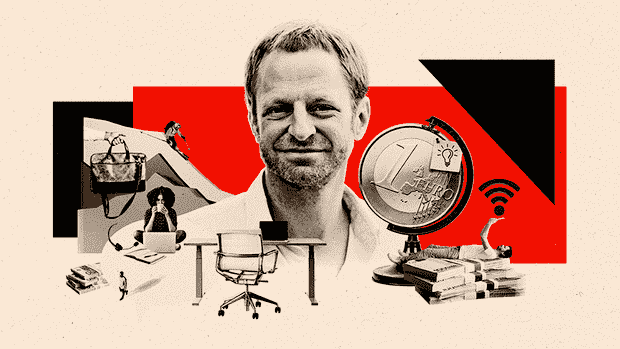Tillmann Prüfer is a member of the editor-in-chief of “Zeit-Magazin”.
When Google was invented, a new hobby quickly emerged: Googling your own name. In a way, being found on the search engine was proof of your importance to the world. In the meantime, if you can’t be found on Google, it’s actually a sign that you don’t exist. At the very least, it means you haven’t gotten anything for an algorithm to look for on the internet.
At the same time, self-googling was a sign of vanity. Because you knew about yourself. What new things should there be to learn? You just wanted to know what others might find about you if they wanted to search.
At some point, what was exciting was no longer what the search engine spit out, but what suggestions it made in the input line. This indicated what people were really interested in in relation to themselves. If it said something like “…husband”, you could imagine that people wanted to know if you were still available. If it read “….death notice” it was less encouraging.
Now the search engine Google is slowly being moderated. The future supposedly belongs to applications like ChatGPT, an artificial intelligence (AI) that no longer outputs website finds, but instead answers questions with small essays.
Unfortunately, there is no verb for querying something on ChatGPT yet. Maybe instead of googling, people will soon say “KIen”, who knows. Surely looking for yourself on ChatGPT will soon become just as big a hobby. I made a start.
>> Read about this: This chatbot would pass an MBA exam – This is how Microsoft’s billion-dollar hope ChatGPT works
The first sentence ChatGPT spat out about my name was correct, namely my job and my employer. However, the program put me on a course to study art history and literature in Berlin and Paris (flattering) and made me seven years older than I actually am (unflattering).
The AI offers visions instead of facts
ChatGPT wants to know that I have published in well-known magazines, and then the program also knows that I have written two books: “Living on Cloud Nine” and “World Improvement Measures”. Needless to say, I have neither written a living book nor one about saving the world.
How does artificial intelligence come up with this? I checked: there is no book title at all, “Living on Cloud Nine” and no work called “World Improvement Measures”. The software made that up freely about me.
Read more columns by Tillmann Prüfer here:
Maybe an artificial intelligence is just presenting what I could do, which is mathematically probable. Maybe she found out that the probability that I will publish a book called “Measures for the Improvement of the World” is so great that you can just say it without any problems. Maybe she has a vision of me.
I think the artificial intelligence recognized me pretty well. At least better than reality. In my opinion, Kien is definitely superior to Googling.
More: These six industries could be revolutionized by artificial intelligence
